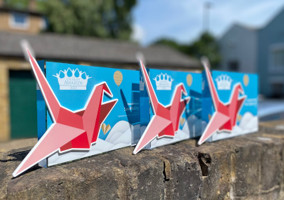BS3 Community Development is a Bristol-based social enterprise which delivers social programmes designed to improve the lives and wellbeing of people in the postcode area of BS3 in south Bristol.
Like so many other organisations, lockdown led to the immediate closure of its community centres and suspension of most activities meaning that “overnight, trading income was devastated”.
In its entry to the Rathbones Covid-19 Response Awards, a special awards introduced to the 2021 Charity Awards, it explained how it had used financial management in its response to the Covid-19 crisis.
“We reduced costs across charity; the senior management team took a voluntary 20% pay cut,” it said. “We deferred expenses to protect cash flow (for example, utility provider payment holidays). We secured a Bounce Back Loan to protect our ability to utilise free cash reserves short-term. We enrolled in the government’s Coronavirus Job Retention Scheme and redeployed staff into alternative roles where their existing jobs were no longer viable.”
It took these steps after its financial forecasts at the start of lockdown predicted a £454,000 deficit by March 2021.
As well as using financial management tools, BS3 Community Development found new ways to fundraise. It implemented individual donation and crowdfunding schemes.
It also took part in the 2.6 Challenge, which was inspired by the London Marathon. This alone raised £13,500.
Operating during the pandemic
These actions meant the charity was able to continue to operate during the pandemic, its submission said.
It became an “anchor” organisation for the BS3 Covid-19 Response Mutual Aid Group and acted as “a ‘bridge’ between statutory and private sectors and were selected as a community hub receiving referrals from Bristol City Council of local people in need of assistance”.
It actively supported the development of a community larder and helped coordinate Bedminster Food Club, founded by Fareshare.
In addition, BS3 Community created mechanisms for seeking support through a website, phoneline and email service for people needing assistance.
“We’re very proud that we kept our nurseries open for all but approximately five weeks in early lockdown, and then we still supported children with online learning via Tapestry, our digital early years platform,” the charity said. “We also continued to work with families seeking childcare places and developed a virtual tour of the nurseries.
“We introduced a nursery retainer fee (initially 50%, subsequently reduced to 25% of full fees) during the lockdown period. The percentage was adjusted down, following feedback from families expressing how the pandemic was affecting them financially.”
All of these efforts meant that despite the worrying forecast, BS3 Community Development told the judges: “Through our efforts we have recovered significant amounts of income lost due to the pandemic lock-down. Remarkably, our latest cash-flow is forecasting income for 2020-21 being on-par with 2019-20.”
Related articles











